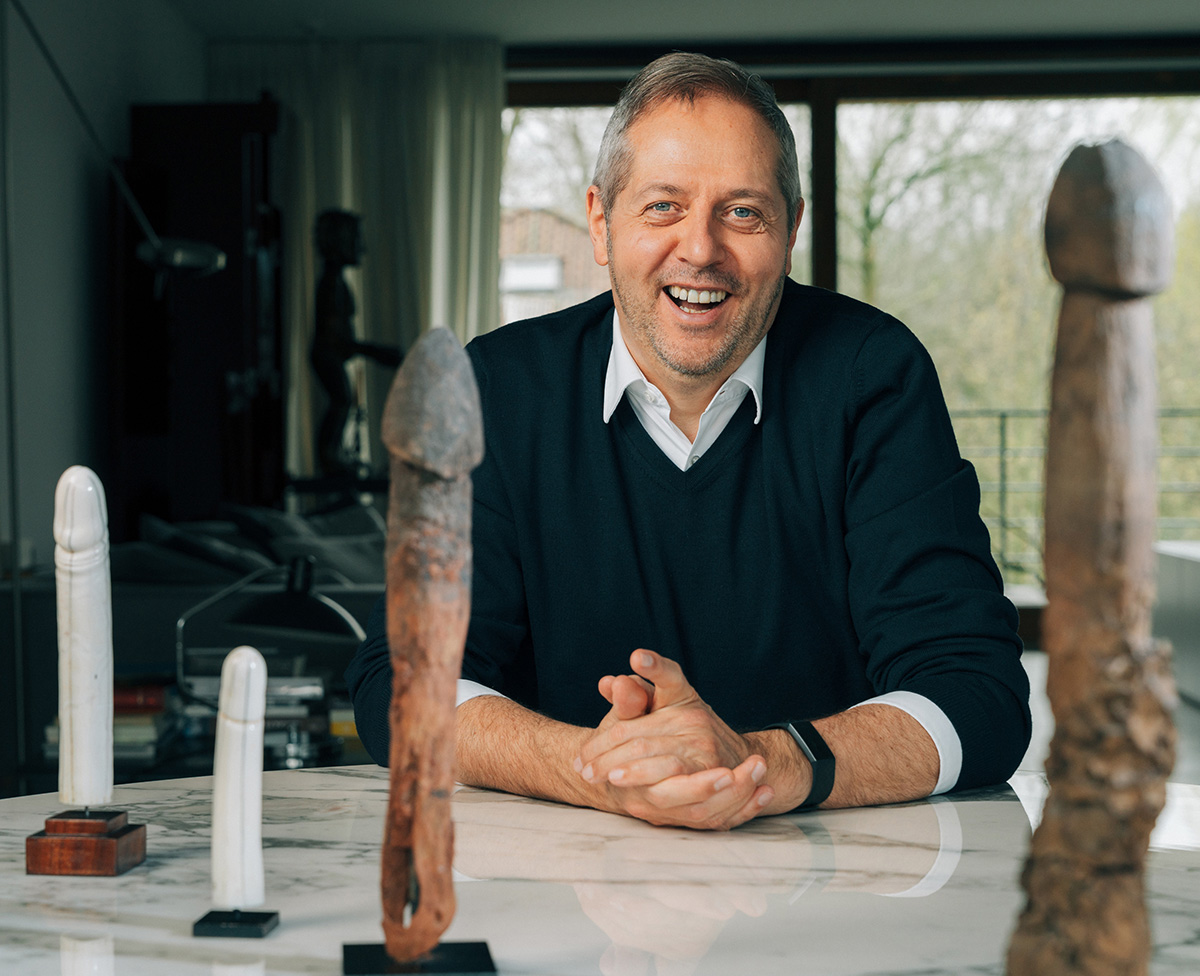The penis - what everyone should know
01-Jun-2020
Half of the world's population has one, the other half may sometimes come into contact with one. However, most people know very little about the penis. And, worse, much of what is thought to be known is merely myth, causing confusion and insecurity. Professor Dr Piet Hoebeke, Chair of the Uro-Gynaecology department and Dean of the Faculty of Medicine and Health Sciences at Ghent University Hospital, is here to educate everyone on penises, answering those questions you didn’t dare ask - whether you're an owner or not!
Initially, I wanted to be a Vet, but, as animals don't have much to say, I decided to train as a Doctor. The penis didn't stand out as the most interesting body part and I never imagined that I'd end up specialising in genitalia and the urinary tract.
I started with the differences in sex development in children and went on to working with transgender patients. 'Intersexuality' involves differences in three levels of a person's sex: genetic (DNA); gonadal (whether they have testicles or ovaries); and the external appearance (whether there's a vulva or penis). All embryos start the same: they have the potential to be male or female, but the Y (male) chromosome plus the male hormones are responsible for the development of the penis, testicles and scrotum. A lot can potentially go wrong in the process and there are hundreds of variations from what might be called the 'traditional difference' between man and woman. Gender - our sexual identity - is a lot more fluid than biological sex, with a spectrum of possibilities.
Men don't think with their penis, but it's an 'extension of the brain' more than any other organ. Even if a man has a perfectly normal penis, he may worry about it. There's a lot of ignorance about the penis and a lot of myths. The lack of knowledge and the myths burden men with frustrations which can diminish their quality of life due to a false image.
The idea of a 'normal' penis is not the opposite of an abnormal one. 'Normal' is just a statistical term. If you measure all penises you can work out the average size and, statistically, 68% of all penises would be within one Standard Deviation of that size - and 95% within two. That means that only 2.5% of penises are much smaller than average and only 2.5% much larger. And, those are still not abnormal - they are just unusual.
The truth is, it's not women who fixate on penises, but men themselves. If men think they don't have enough in their pants, they worry. In reality, if they're being looked at at all, it's not by women but by other men. Women look at the whole body, not just the crotch. It's not penis length that will win over women - by the time a woman wants to see your penis, she'll probably have already fallen for your personality or other aspects of your body.
PDD (Penile Dysmorphic Disorder) - worrying about penis size - usually comes from a disparity between what men see (or believe) and the reality of what's actually there - the condition is in their head, not their trousers. PDD can result from a one-off 'casual' remark by someone that has a long-lasting negative effect. If you have negative thoughts about a man's penis, keep them to yourself - never, never say them out loud.

Penis size isn't the only thing that can concern men. Circumcision can have an effect on a man's self-perception. There are very few medical needs for it and the benefits of having a foreskin far outweigh any social or religious mores or rituals for its removal.
To add to men's possible insecurities about their penis, the organ appears in two states: flaccid and erect. The penis in both its forms disappeared from normal life due to societal 'morals' and now can generally only readily be visible through pornography. Most porn depicts penises in the upper end of the statistical size and, as these are often the only ones easily viewed (apart from sneak peeks in changing rooms), this has added to men's possible psychological insecurities. Ejaculation can be another area of concern for men. Mostly it's about the amount of semen ('cum') that they produce. The usual amount (for 95% of men) is about a coffee spoonful (2 to 8cm3). Those producing more or less are uncommon and it's not a problem biologically. The only way men usually see others ejaculate is in porn which uses cunning editing techniques and other subterfuges to make it appear that performers produce more. If you do want to maximise the volume, it pays to be well hydrated (drink 1.5-2 litres of water a day), but the only person who might have any concern over the volume is the producer himself.
Another self-induced concern can be the 'power' of ejaculation. If it's a concern, exercising the pelvic floor to maintain its strength can increase the 'force', as it's a muscle like any other in the body. Doing pelvic floor exercises (for both men and women) also has beneficial effects for continence.
These are yet more potential self-enforced insecurities exacerbated by lack of education and by pornography.
One interesting study showed that men who ejaculate more than 21 times per month have a 20% lower chance of getting prostate cancer. Other studies have showed that the 'average' is more like once per week, so there's potential for a lot of catching up. Providing it does not result from sex addiction or excessive masturbation, you can't ejaculate too often and more frequent ejaculation can help to protect the prostate.
The penis is an important organ, not just for urinating and reproducing, but also for male identity and self-confidence. The apprehension both men and women feel about the penis is closely related to the taboos of sex. Some men have such a disturbed image of their penis that their relationship or even their entire life suffers because of it. As soon as a man 'wants' his penis to be abnormal, he needs a psychologist or a sex therapist rather than a surgeon. The problem is between his ears, not his legs.
Piet’s book (Members Club: A User's Guide to the Penis from Bloomsbury) is an often-amusing, educational and easy read! It will help you understand the benefits of urinating whilst sitting down (and how your pee spirals out), how ejaculation actually works, a sensitive and informative view on transgender, the effects of our diet (including dark chocolate!), how to look after your penis and a whole lot more. It really is a 'user's guide'. echo ;

